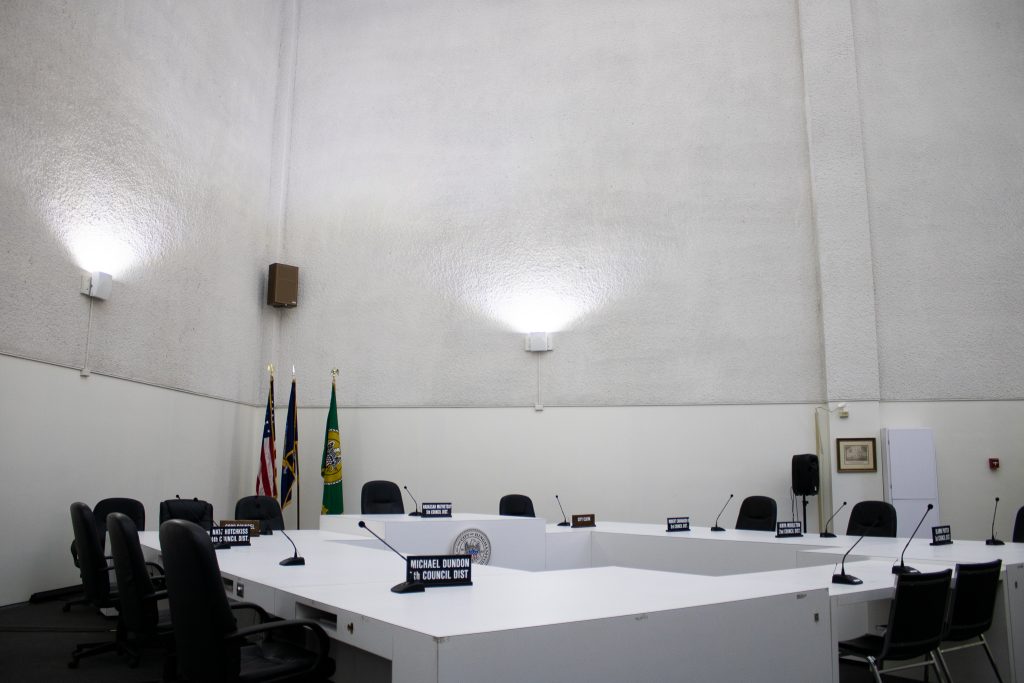Aside from the multitude of candidates for elected office, Binghamton voters will see a referendum to change how members of the Binghamton Human Rights Commission are appointed on their ballot this November.
The legislation establishing the commission was passed in 2011. However, according to Councilman Nate Hotchkiss ‘12, the body has not seen an appointment since 2016, when Mayor Rich David, a Republican, with the support of a City Council majority altered the process, designating appointment authority entirely to the mayor. Since then, the commission has remained vacant.
“Bodies like these are encouraged by the NYS Human Rights Commission, as they help to take the burden off of the state system and can triage individuals to relevant local nonprofits/entities for assistance,” Hotchkiss wrote to Pipe Dream.
Though the City Council voted this year on legislation to amend the law — allowing the council to make four appoints and the mayor the remaining three to ensure the body can function, a referendum is required to formally change an elected official’s authority. The bill was sponsored by Hotchkiss and fellow Democratic city councilors Kinya Middleton, Robert Cavanaugh II and Olamni Porter. Middleton and Porter, who Hotchkiss said were strong proponents of the appointment change, did not provide comment.
Mayor Jared Kraham vetoed the amendment, Local Law 24-02, in July. In a message to City Council President Hadassah Mativetsky ’07, MS ’12, he wrote, “Matters of human rights and complaints of discrimination should be dealt with at the state level.”
In a statement, Kraham said that matters of human rights should be overseen by the state’s Division of Human Rights, which is established and funded to productively handle these issues. He added that a local commission would complicate these processes for individuals and could create liability for the city.
“Since its inception, Binghamton’s human rights law and commission have been deeply flawed in both legal reasoning and practical operation,” Kraham wrote. “For these reasons, and in order to manage risk to the City of Binghamton, the commission has been unfilled and inactive for years under multiple administrations. This has been for the protection of City taxpayers and the very people who are filing human rights complaints, who deserve to have their cases handled fairly and professionally.”
Hotchkiss, a Democrat, said the commission would allow residents to vocalize concerns about human rights abuses, especially as complaints against the Binghamton Police Department are received only by its Internal Affairs division. A report released by Letitia James, the state attorney general, in May raised concerns about the Police Department’s ability to properly conduct its own internal investigations, specifically addressing a case where an officer, Brad Kaczynski, knelt on the neck and back of Hamail Waddell, a Black-Asian man.
According to Sean Massey, one of the Human Rights Commission’s founding members and an associate professor of women, gender and sexuality studies who was elected to the City Council in 2007, the commission endorsed a series of reforms to the Police Department — called the Police Modernization Law — after hearing complaints about racial profiling. The reforms would develop and implement plans to increase police diversity, establish cultural competency training, track all pedestrian and vehicular stops and create a law explicitly stating that racial profiling is illegal in Binghamton
“In retaliation for proposing these reforms, Mayor David and the Republican majority on City Council ended the terms of everyone sitting on the Commission and passed legislation changing how new future appointments would be made,” Massey wrote to Pipe Dream. “The changes removed the language intended to keep the Commission independent and that protected it from interference by City officials. Previous Commissioners were then invited to apply for possible reappointment by the Mayor. In protest, none of the previous Commissioners reapplied. No efforts have been made by the Mayor or Council since then to solicit and appoint new commissioners.”
Dara Silberstein ‘81, an associate research professor of women, gender and sexuality studies who was a founding commissioner, said her participation helped her realize that discrimination takes on all forms, even those not explicitly illegal. At the time of its inception, the commission was part of a broader effort to rectify systematic inequalities within the community, she added, saying “frankly it should not be up to the person experiencing the harm to stop it from happening.”
Kraham told Pipe Dream that human rights issues “should be handled by the experienced attorneys, staff and judges at the New York State Division of Human Rights, created and funded to handle these complaints effectively and independently.”
Massey said that when drafting the legislation establishing the commission, the City Council at the time consulted with officials from the state Division on Human Rights and other scholars and experts who have experience with human rights research. Another major concern of theirs was ensuring the Commission was protected from backlash, should they make decisions criticizing city officials or departments.
“It is important for the Commission to be staffed as soon as possible with well-qualified individuals who are committed to its mission,” Massey wrote. “But it is equally important that the new Commission establish itself and that city officials (including the BPD) view them as an independent body that is allowed to provide important guidance to the city and our community.”



